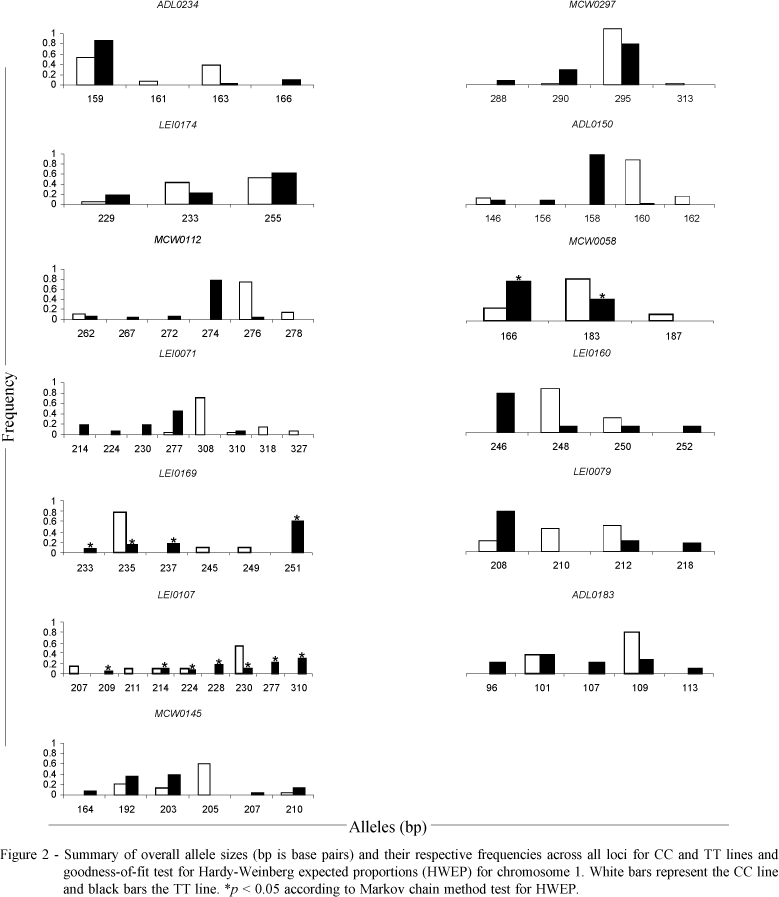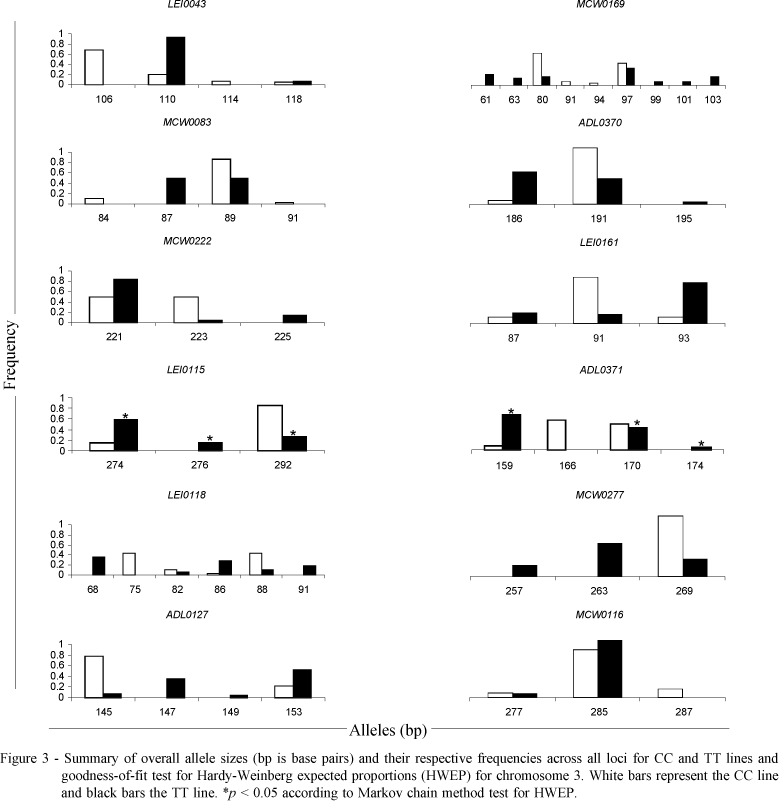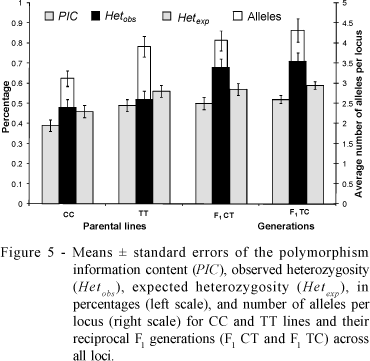Chicken experimental populations have been developed worldwide for QTL mapping, but their genotypic characterizations are not usually discussed. The objective of this study was to characterize genotypically two F1 reciprocal generations and their parental lines based on the estimation of genotypic parameters. These F1 generations originated two Brazilian reference populations to map QTL. The evaluated parameters were polymorphic information content (PIC), observed and expected heterozygosities and number of alleles at microsatellite loci on chromosomes 1, 3 and 4. All parental and F1 chickens from both populations were used totalling of 83 chickens: 14 from a broiler (TT) and 14 from a layer line (CC) and 55 from their reciprocal F1 generations. The chicken lines and the resource populations were developed at the National Research Center for Swine and Poultry (EMBRAPA), Brazil. Genotypes from all animals were obtained from 34 loci on chromosomes 1 (13), 3 (12) and 4 (9). Based on the sampling, we found that the two lines exhibited a total of 163 different alleles, of which 31 (31.1%) and 44 (33.0%) alleles were unique in CC and TT lines, respectively, with allelic frequencies ranging from 0.03 to 0.82. The observed heterozygosity was higher (0.68-0.71) in both F1 generations than in their founder lines due to linkage disequilibrium. Finally, the two chicken lines used as founders created two F1 reciprocal generations with high levels of PIC (0.50-0.52) and observed heterozygosity, as well as satisfactory number of alleles per locus (4.06-4.32). Our results will allow to compare and select families with highly informative microsatellite markers for QTL studies, reducing genotyping costs.
PIC; genotypic diversity; heterozygosity; number of alleles









